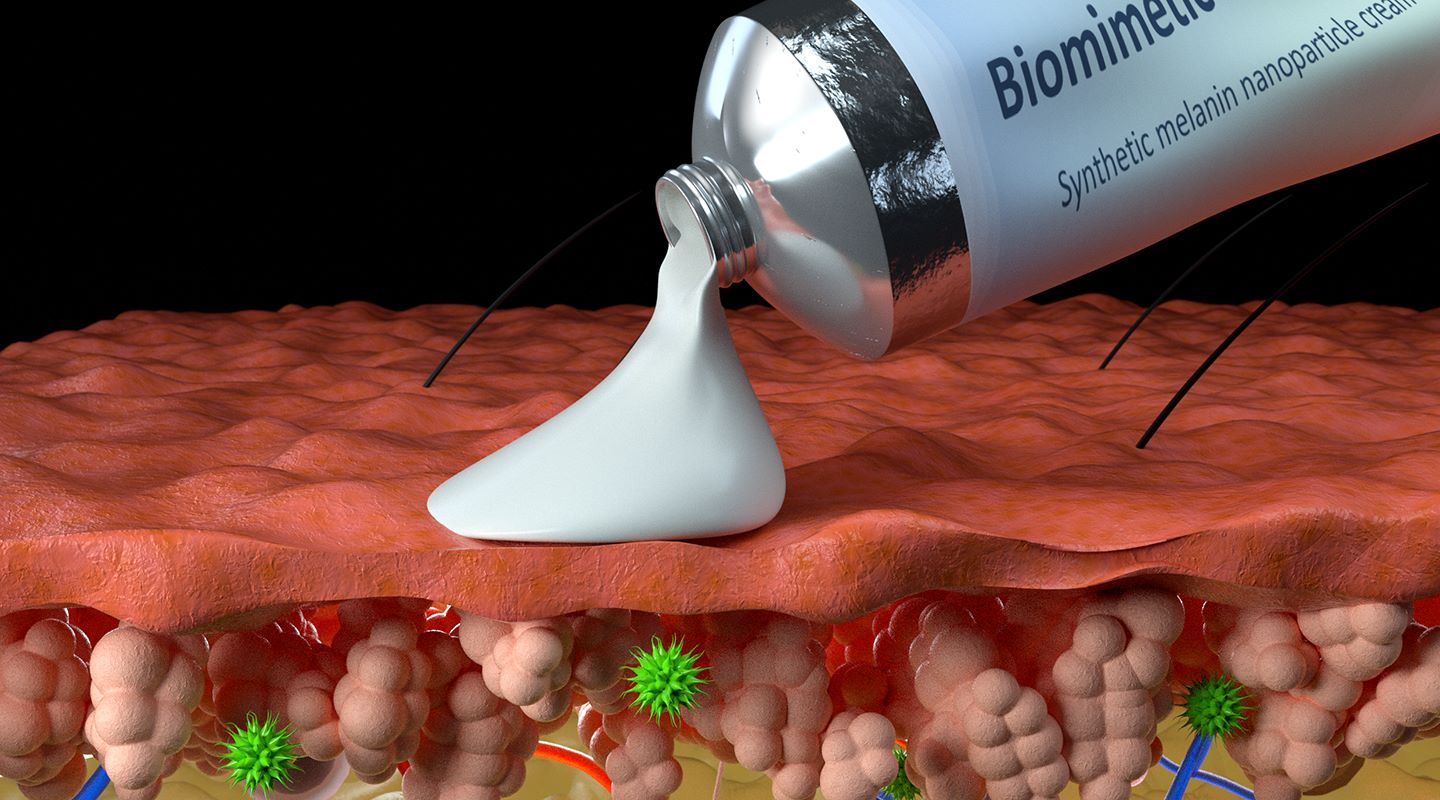Northwestern University scientists have showcase a synthetic melanin cream that not only repairs damaged skin but also shields it from sun-induced harm, according to a study published Thursday in the journal Nature.
Mimicking natural melanin found in human skin, their “super melanin” accelerates wound healing both locally and systemically within the body.
The researchers, supported by a grant from the National Institute of Arthritis and Musculoskeletal and Skin Diseases, assert that their engineered melanin can safeguard skin from sun exposure and aid in healing sun-damaged or chemically burned skin.
By scavenging free radicals — molecules that cause cellular damage and are produced in sunburnt or injured skin — the synthetic melanin prevents potential aging and skin cancer risks.
Nathan Gianneschi, one of the lead authors and a professor at Northwestern, describes their synthetic melanin as highly effective in neutralizing free radicals compared to natural human melanin.
“It’s like super melanin,” he explains. “Biocompatible, degradable, nontoxic, and clear when applied to the skin, it acts as a sponge to remove harmful factors and shield the skin.”
Moreover, their studies demonstrate that this synthetic compound stabilizes skin, fostering a healing response in both superficial layers and deeper tissues.

Melanin, responsible for skin’s natural tanning response to sunlight, not only protects against UV damage but also counteracts free radicals generated by environmental pollutants.
Dr. Kurt Lu, co-lead author and professor at Northwestern’s Feinberg School of Medicine, emphasizes the ongoing assault on skin from daily sun exposure, which accelerates aging and inflammation.
He underscores that their synthetic melanin could bolster traditional sunscreen protection and serve as a reparative agent in moisturizers, offering continuous skin repair and defense.
The team’s experiments revealed that the synthetic melanin cream not only mitigates skin damage but also moderates inflammatory responses triggered by free radicals, aiding in the skin’s healing process.
By stabilizing upper skin layers, the cream fosters active healing throughout the body, as evidenced in laboratory tests on human skin tissue samples.
Looking ahead, Gianneschi and Lu are looking for broader applications of their technology, funded by the National Institutes of Health and the Department of Defense.
They believe synthetic melanin could shield against toxins and even treat radiation burns, potentially benefiting cancer patients undergoing radiotherapy.
With recent trials confirming the cream’s safety on human skin, the researchers are moving toward clinical trials to establish its efficacy in medical settings.
